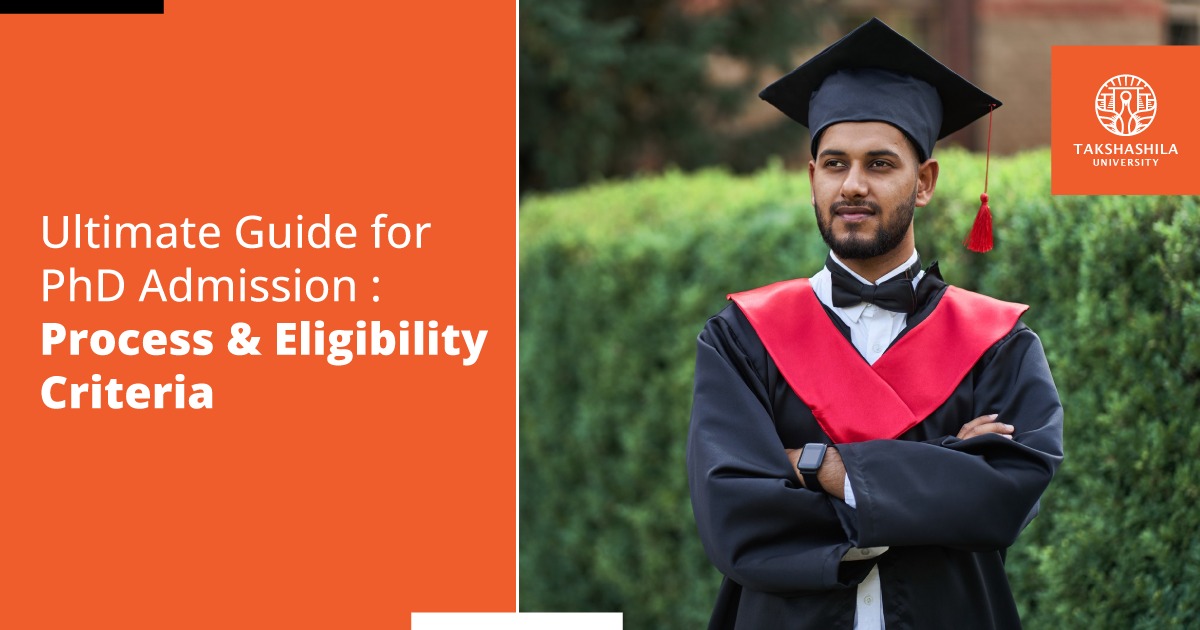Ever dreamed of diving deep into a subject, pushing the limits of understanding, and turning into a real expert?
A PhD program might be your ultimate adventure! This comprehensive guide for PhD admission is your map to navigate the exciting, yet sometimes complex, application process.
Earning a PhD isn’t just about getting a fancy title (though Dr. sounds pretty cool!). It equips you with advanced research skills, in-depth knowledge in your chosen field, and the ability to make groundbreaking contributions.
But before you embark on this academic journey, you’ll need to conquer the first hurdle: getting accepted into a PhD program.
Understanding PhD Programs
Continuing our guide for PhD admission, there are two main types of PhD programs:
- Research-based: Here, you’ll spend most of your time conducting original research under the guidance of a faculty advisor. Think of them as your personal research mentors! Remember: It’s crucial to choose a program where your research interests align with the faculty’s expertise.
- Coursework-based: These programs offer a balance between research and coursework, giving you a strong foundation in your field before diving into independent research.
The good news? Many PhD programs offer funding to help you cover your costs. This can come in the form of scholarships, fellowships, or teaching or research assistantships.
Guide for PhD Admission: Eligibility Criteria
Earning a PhD is a prestigious accomplishment, but before you can begin, you’ll need to navigate the PhD process. This Guide for PhD Admissions will help you that.
Academic Background
Your academic background is the foundation of your PhD application. Most programs require a minimum GPA in your undergraduate degree, typically ranging from 3.0 to 3.5 (on a 4.0 scale). Remember: Check with specific programs, as their requirements may vary.
For some fields, a Master’s degree is mandatory. Here, too, a strong GPA, often slightly higher than the undergraduate requirement, is crucial.
Subject Focus
Your chosen field of study plays a vital role. Many programs require specific coursework directly related to your PhD interests. For instance, a Computer Science PhD program might expect prior coursework in programming languages and algorithms.
Beyond Grades
While a strong GPA is important, it’s not the sole factor. Look for opportunities to take courses directly related to your PhD aspirations. This demonstrates your passion for the field and prepares you for advanced research.
Standardized Tests: Passing the Benchmarks
Many PhD programs require standardized tests the common ones are
- GRE: This general test assesses your verbal reasoning, quantitative reasoning, analytical writing, and critical thinking skills.
- GMAT: This test focuses on analytical, writing, verbal, and quantitative skills, with an emphasis on business school readiness.
- Subject Tests: These delve deeper into specific disciplines like Biology, Chemistry, or Mathematics.
The Application Process
In this guide for PhD Admission let’s see the Application process
Step 1: Starting Early and Meeting Deadlines
PhD applications often have strict deadlines. Don’t wait until the last minute! Starting early allows you to gather required documents, refine your application essays, and ensure everything is submitted on time. Missing deadlines can result in disqualification, so plan your application well in advance.
Crafting a Compelling Application: The Documents You Need
Your application package is your chance to shine. Here are a common documents you’ll need
- Personal Statement: This essay allows you to showcase your research interests, career goals, and reasons for pursuing a PhD. (We’ll discuss how to write a stellar personal statement in a later section.)
- CV/Resume: Highlight your academic achievements, research experience, and relevant skills. Keep your CV concise and focused on your academic journey.
- Transcripts: Official transcripts from all universities attended are mandatory. Ensure they are sealed and sent directly from the issuing institutions.
- Letters of Recommendation: Strong recommendation letters from professors or supervisors who know your work well can significantly strengthen your application.
Conclusion
Hope this guide for PhD Admission was helpful. If you are looking out for the best Ph.D. college in Chennai then one of our top picks will be Takshasila University. They cater to multiple PhD disciplines like CSE, ECE, Management, Computer Science, Mathematics, Physics, English, Commerce and much more.
The journey toward PhD can be challenging and rewarding. Following these steps in this Gudie of PhD admissions will help you if you have no idea about pursuing PhD. With dedication and preparation, you can turn your PhD aspirations into reality. Good luck!
Frequently Asked Questions (FAQs) – Ultimate Guide For PhD Admission : Process & Eligibility Criteria
1. How early should I start preparing my PhD application?
Deadlines are so important when it comes to PhD applications, so you give yourself ample time to gather all documents, write essays and ensure everything is submitted on time. Aim to begin at least 6 months before the application deadline.
2. My program requires a GRE score. How can I best prepare?
Many universities offer official practice materials and online resources for the GRE. Explore these options and consider a prep course if needed. Remember, the Guide for PhD Admissions emphasizes starting early – give yourself enough time to study effectively.
3. I don’t have any formal research experience. How can I strengthen my application?
The Guide for PhD Admissions highlights the value of research experience. Look for opportunities to participate in undergraduate research projects or internships. Even volunteering in a research lab can demonstrate your passion and initiative.
4. What should I include in my personal statement?
Your personal statement is a key component of your application package. A great statement, as discussed in the Guide for PhD Admissions, showcases your research interests, career goals, and motivations for pursuing a PhD.
5. How can I approach professors for strong recommendation letters?
The Guide for PhD Admissions recommends reaching out to professors or supervisors who know your work well. Schedule meetings to discuss your PhD aspirations and highlight how your research aligns with their expertise. Provide them with relevant materials to jog their memory and make writing the letter easier.






